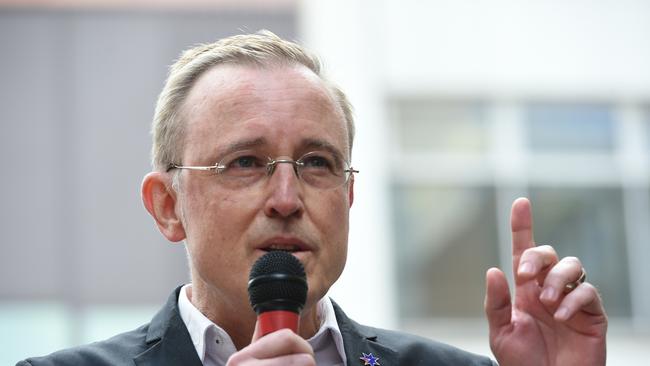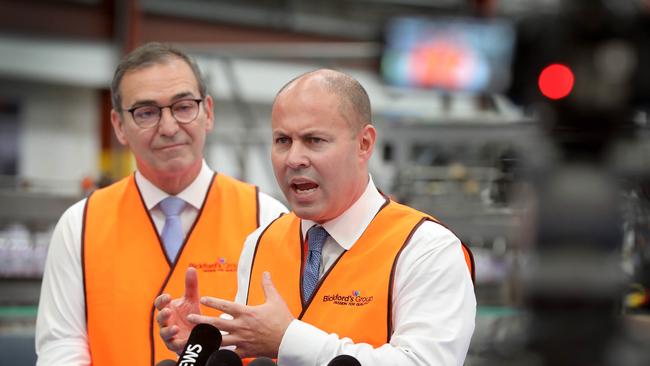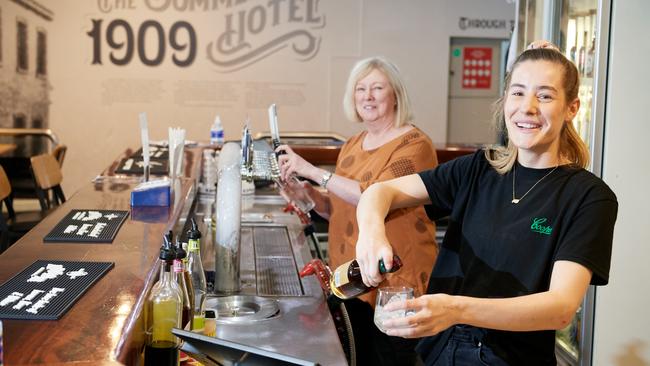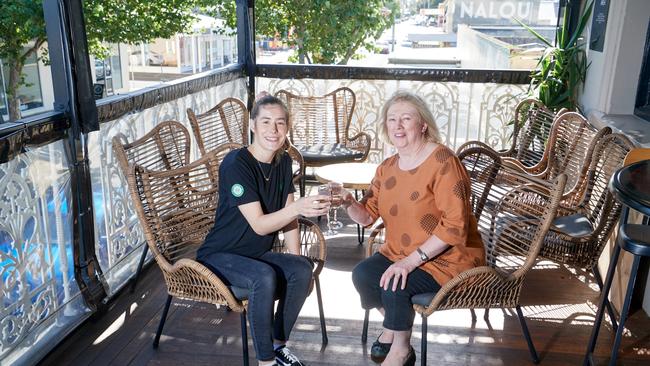Building a Bigger, Better South Australia: Slash payroll tax to grow jobs in regions
SA businesses say they’re being undercut by interstate tax deals that they can’t match. Now there’s a new call to get us into the same zone.
State Election
Don't miss out on the headlines from State Election. Followed categories will be added to My News.
Interstate and global firms would be galvanised to set up in regional South Australia by halving the job-destroying payroll tax outside Adelaide, according to analysis by the state’s peak employer group.
Business SA is urging a payroll tax discount of 50 per cent in regional SA, warning even that cut would not match Victoria’s regional rate of just 1.2125 per cent but would “go a long way to reducing the existing disparity”.
Employers in Mount Gambier are being stung, Business SA chief executive Martin Haese says, while those just over the border are getting “a comparative free kick”.
Victoria slashed its regional rate last July to a quarter of the metropolitan rate – a year earlier than planned to drive economic growth during the Covid-19 pandemic.
“We’ve reduced payroll costs for businesses across the board and in regional Victoria, the one-quarter rate is an important incentive for businesses to invest and employ more people,” a Victorian government spokesman said.
Premier Steven Marshall’s government in 2019 abolished payroll tax for small businesses with payrolls below $1.5m. Businesses pay a variable rate from that threshold up to 4.95 per cent for payrolls exceeding $1.7m.
Mr Haese, a former lord mayor, said Victoria’s lower regional rate was disadvantaging SA employers and risking jobs.
“Our close neighbours in Victoria see a considerably stronger regional economy, both from a dollar perspective and a population perspective. The vastly lower rates of payroll tax paid by regional Victorian businesses enable this to happen,” he said
“Imagine the disadvantage that a larger South Australian employer would currently be facing in Mt Gambier, while businesses just across the border are receiving a comparative free kick.”

Business SA’s pre-election charter recommends the Victorian model be considered, because this requires an employer to have at least 85 per cent of their staff working in the regions as well as maintaining their “principal place of business there”.
This would help maintain existing businesses but also encourage new companies to move their entire operations to regional SA.
Business SA also suggests the payroll tax reform require 85 per cent of a firm’s employees have their primary residence in regional SA, ensuring the incentive backs both businesses and workers based in regional communities.
“This is not a tax break to incentivise fly-in fly-out positions or employees living in metropolitan Adelaide working remotely, as is increasingly the case in Covid times,” the Business SA submission says.
Mr Haese said special economic zones to stimulate regional investment and growth were an interesting concept but dividing payroll tax zones into regional and metropolitan areas was simpler.
“We are a city-centric state, with the vast majority of our population residing in metropolitan areas. However, there are plenty of opportunities for interstate and international companies to relocate or expand into regional South Australia,” Mr Haese said.
Mr Marshall on Monday announced a re-elected Liberal government would remove payroll tax on all trainees and apprentices for two years, saving employers an estimated $18.2 million.

Federal Treasurer Josh Frydenberg in Adelaide on Tuesday branded payroll tax “effectively a tax on employment” and welcomed cuts to encourage job creation.
Australian Industry Group SA head Jodie van Deventer backed special economic zones, saying these could create industry clusters where businesses could learn from one another and pool together to add value.
“A payroll tax zone, for example, would reduce employment costs resulting in more jobs and business investment in a particular region, resulting in higher consumer spending and setting in train a virtual circle of more regional job creation and investment,” she said.
However Ms van Deventer cautioned that this risked diverting jobs and spending from other parts of the state, without adding to overall employment or investment, but swelling the overall tax burden.

20 minutes between job killer and job maker
By Todd Lewis and Michelle Etheridge
CUTS to payroll tax would help South-East businesses reach a level playing field with their Victorian counterparts, they say, as they battle to secure skilled staff.
In some cases, employers in the region are paying three times the payroll tax rates of their counterparts just 20 minutes away.
Mount Gambier Chamber of Commerce president Hayley Neumann said payroll tax rates should be uniform across the country – and in the South-East they were stifling growth.
“Unfortunately, it’s just an added expense to business, which increases their cost of employing and potentially stops them from employing further,” she said.
According to Business SA, adopting Victoria’s regional model would cost the state government about $20m a year but support up to 800 existing businesses.
Ms Neumann said businesses in the South-East already had additional expenses compared to those in metropolitan areas and reducing payroll tax would help offset those costs.
“Many of the trade industries are required to spend much more on training due to the lack of training centres available here in Mount Gambier and the wider South East,” she said.
“The cost of travel, accommodation (and) wages add up on top of the course fees when you are required to send staff to Adelaide or Melbourne.”
At Mount Gambier-based Fennell Forestry, owner Wendy Fennell said payroll tax cuts would boost businesses such as hers as they competed for skilled labour.
“A lot of drivers have moved out of the industry because of the constant testing and vaccination mandates,” she said.
“All industries are looking for skilled labour and, in particular, the skill-sets in forestry complement construction, which is very busy, and mining, where businesses are able to pay a lot more.”

Ms Fennell said businesses needed “relief” to help train staff for skilled roles and address workforce shortages.
“Any ability to reduce the cost of employing people will go towards solving that problem,” she said.
Bronwyn Hills, manager of the Commercial Hotel, said payroll tax cuts would help her increase staff hours amid a tough business environment.
The biggest hurdles to overcome were tough social distancing restrictions limiting the number of people allowed in venues and banning dancing and drinking while standing.
“Hospitality has been crippled,” Ms Hills said.
“People are just driving through the bottle shop and then spending time with family and friends.”
Forestry represents one of the region’s biggest industries, directly and indirectly employing more than 4000 people.
Local forestry union spokesman Brad Coates said it was fortunate the industry’s existing businesses had stayed in the region.
“(But) I’m sure there’s probably situations where new businesses have elected to set up in Portland or Warrnambool (in Victoria) because of the payroll tax,” he said.





